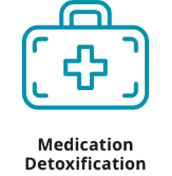911 Dispatcher Mental Health & Substance Use Services
911 dispatcher mental health is a real concern, as the job requires one to be calm and effective in times of high stress and urgency. While dispatchers may not witness emergencies firsthand, they are still exposed to vicarious trauma on a regular basis.
At Healing Our Heroes Retreat Behavioral Health, we recognize just how important it is to offer mental health services designed around these unique experiences. As the connecting link between civilians and first responders, these emergency professionals play an important role in mitigating danger and getting help to the scene. In doing so, they open themselves up to potential consequences that can greatly impact their mental well-being and quality of life, including the development of stress, burnout, depression, anxiety, and post-traumatic stress disorder (PTSD).


Is 911 Dispatcher a Stressful Job?
Every year, on average, 240 million callers rely on the help of 911 dispatchers. Unfortunately, while most people can easily recognize the inherent stress of working in emergency services, 911 dispatchers are often overlooked. In reality, working as a 911 dispatcher comes with its own major stressors, all of which can lead to the same mental health issues faced by other EMS providers.
911 dispatchers are responsible for connecting civilians to the help they need during acute situations. Yet, because dispatchers don’t always receive updates on the calls they take, those situations can feel unresolved even after they’ve been closed. Experiences like helping a caller navigate CPR on an unresponsive individual or dispatching law enforcement to an ongoing crime are common; however, without the closure that comes with seeing how the situation played out, these situations can feel draining. They are also prone to physical issues related to being in a high-stress profession, such as poor nutrition and obesity, fatigue, and persistently high levels of cortisol.
In addition to extreme stress, 911 dispatchers may also face a variety of other mental health issues, including:
- Depression
- Anxiety conditions
- PTSD
- Burnout
- Substance use disorder
Treating 911 Dispatcher Stress & Mental Health Disorders
We take a comprehensive approach to treating 911 dispatcher mental health conditions, including stress, burnout, and co-occurring disorders. Dedicated resources and services at Retreat Behavioral Health treatment centers address both the issues and their root causes. These services include substance use treatment and mental health treatment, with inpatient and outpatient options based on an individual’s needs.
Moreover, our staff is composed of licensed psychiatrists, therapists, counselors, nurses, and medical professionals, all of whom remain fully committed to our mission of compassionate care.
Program includes the following:










Our Florida Treatment Centers
Help is available from Healing Our Heroes Retreat Behavioral Health at all of our Florida locations for 911 dispatcher stress, depression, PTSD, substance use, and more. We provide dedicated support for emergency call center employees through our Healing Our Heroes program, allowing them to heal in a safe and serene environment. If you are a 911 dispatcher suffering from mental health and substance use issues, or if you know a 911 dispatcher who is struggling, contact us for additional information on admissions and specialized services.
Call (855) 859-8808 for direct assistance








